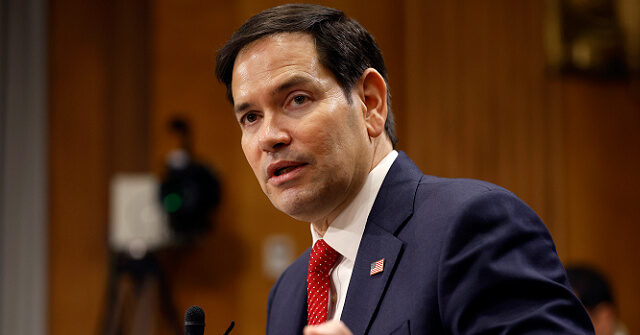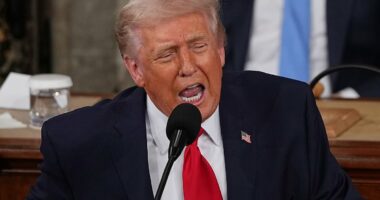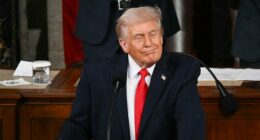Share this @internewscast.com
Secretary of State Marco Rubio has halted the issuance of new visas that would allow migrants to operate large trucks on U.S. highways, either legally or illegally.
“We are stopping all worker visas for commercial truck drivers with immediate effect,” he declared on Thursday evening. “The surge of foreign drivers on American roads poses a threat to US citizens and impacts the job market for American truckers.”
This announcement highlights a significant issue: many migrants find employment in the U.S. after obtaining temporary visas from the State Department. While illegal migration often dominates discussions, the legal flow of economic migrants also significantly affects American wages, productivity, and innovation.
The decision for a temporary suspension came nearly a week after allegations that an Indian driver caused the deaths of three Americans on a Florida turnpike by making a dangerous U-turn. In response to this incident, captured on video, Transportation Secretary Sean Duffy has pledged stricter enforcement of safety regulations and intends to investigate how the Indian immigrant obtained a commercial driving license without understanding English or road signs.
Florida Gov. Ron DeSantis is also trying to deal with the problem of reckless foreign truckers.
Rubio’s statement does not affect existing visas for numerous migrants currently driving trucks, often with licenses granted by pro-immigration states like California and Utah.
The announcement does not say which visas will be denied.
Seasonal H-2B visas are also used to legally import truckers for the agriculture industry.
Additionally, many foreign drivers illegally work using temporary B-1/B-2 visitor visas, while some obtain E-2 investor visas, permitting them to work legally as truck drivers in the U.S.
Both are used in large numbers by Indians to get trucking jobs in the United States. Also, many Indians used F-1 student visas to get into the United States, but quickly and illegally take jobs in hotels, stores — and perhaps at trucking companies.
Foreign truckers in Mexico, Canada, and Eastern Europe also use the B-1/B-2 visa to drive in the United States.
Prior to this administration, federal officials had conducted very little oversight into the activities of visa holders.
Advocates for American truckers cheered Rubio’s news.
Pro-migration advocates jeered Rubio’s decision.
“Massive truck driver shortage that is driving up the prices of everything we purchase and Rubio decides to make it worse based on an anecdote,” said David Bier at the Cato Institute. “Totally absurd decision making process though I don’t know what visas he’s even talking about ‘pausing.’”
For many years, trucking companies have insisted there is a shortage of drivers in a vast nation of roughly 170 million blue-collar and white-collar workers. Advocates for truckers, however, say the industry is not paying drivers enough to keep them on the gruelling job, which often keeps truckers on the road and away from their families for more than a week at a time.

















